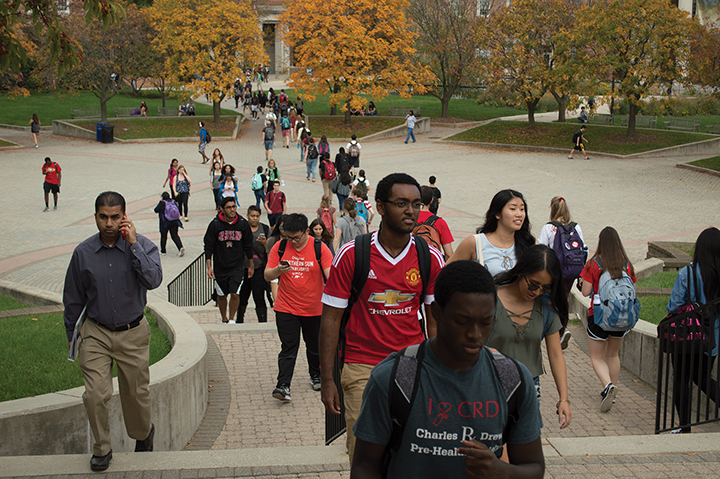Because some majors at the University of Maryland don’t place an emphasis on diversity and race, junior Miranda Velasquez said she wants these issues to be more integrated into curricula.
“For my major, it doesn’t cover race at all,” said Velasquez, a hearing and speech sciences major. “We talk about socioeconomic status … and that always goes back to the poor and minority groups, but that is as deep as it goes into race. Sometimes I do kind of wish that [the college] would go a little bit deeper into those issues.”
Kumea Shorter-Gooden, chief diversity officer at the Office of Diversity and Inclusion, said she has heard from students about the lack of classroom discussion regarding different facets of diversity.
“I have heard from students over the past years about really feeling like many of their peers are not well-educated when it comes to diversity issues,” Shorter-Gooden said. “They are not able to interact effectively across difference … that their peers commit microaggressions and macroaggressions related to race, gender or sexual orientation.”
As a professor in American studies and the U.S. Latina/o Studies minor program, Nancy Mirabal said her department would like to see combined classes between the minor and other majors.
“For instance, going to the journalism school and asking them if they will be willing to teach a course on journalism and Latinos, or journalism and immigration, and then we would cross-list the courses,” Mirabal said.
Although she said the university has done a good job in offering diversity courses, Shorter-Gooden acknowledged there is room for improvement.
“We, unlike a number of our peers, have a diversity requirement in the general education curriculum,” Shorter-Gooden said. “The next step … would be to actually require cultural competence courses.”
Cultural competence is another designation within the diversity curriculum, she said. This university has one existing cultural competence course, the EDHI:338 Teaching and Learning about Cultural Diversity through Intergroup Dialogue course that the Office sponsors, she added.
“[The course] engages students in learning about their identity, their biases and how to interact across difference,” she said. “Each Dialogue focuses on a different area — e.g. race, gender, sexual orientation — and the classes have no more than 14 students.”
Alexander Sorto-Guevara, a senior criminology and criminal justice major, said if courses like these become mandatory, students would be able to learn more about their surroundings. However, they would need to take the course seriously and not just treat it as another elective, he added.
“I think you have to take a personal initiative, and if you treat this as another class that you can just check off for graduation, I feel that it would be a disservice to the concepts of the class,” Sorto-Guevara said.
Taking courses that discuss diverse topics would also help students understand the history of the United States, Mirabal said.
“In 20 to 25 years, we are going to look very different as a nation,” Mirabal said. “What that means is that we cannot continue to not bring attention to or learn more about or to consider other cultures, views, politics, histories … it’s key in who we are and who we are becoming.”



